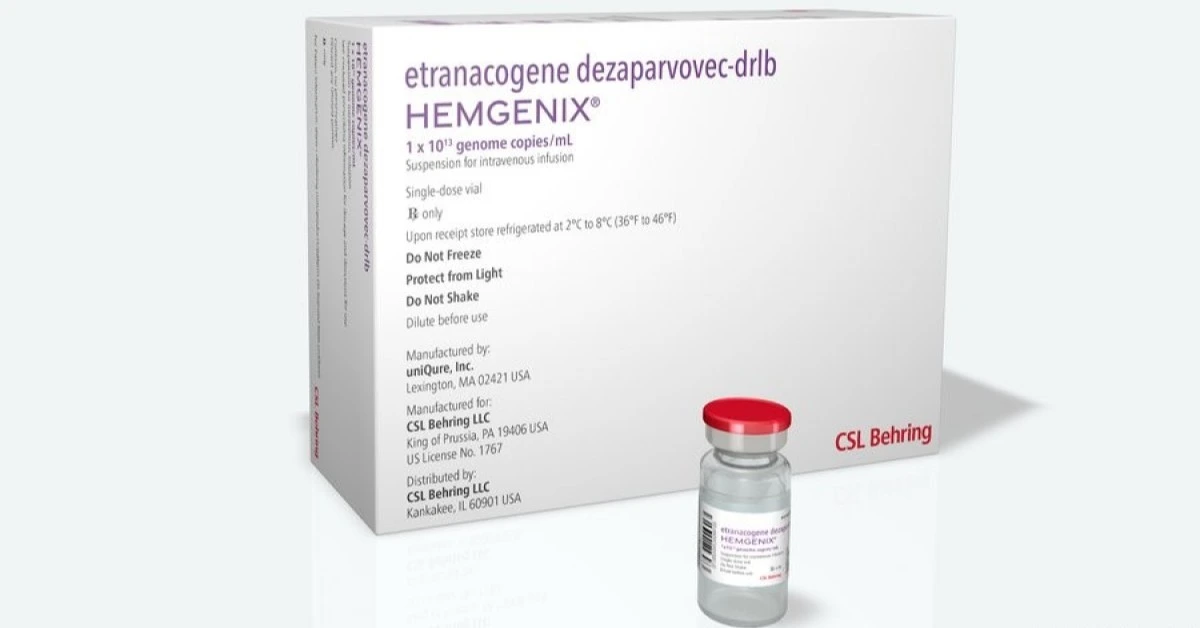
GERMANY – CSL Behring has made a significant stride in expanding the reach of its pioneering hemophilia B gene therapy, Hemgenix, by securing reimbursement coverage in Germany.
The recent agreement with Germany’s GKV-Spitzenverband, the national association of statutory health insurance funds, marks another major milestone for Hemgenix, which is now accessible to patients across a broader European landscape.
Under the new access deal, Hemgenix (etranacogene dezaparvovec) will be reimbursed as a treatment for severe and moderately severe hemophilia B in adult patients without a history of Factor IX (FIX) inhibitors.
This development is particularly noteworthy as Hemgenix is the first gene therapy approved in Europe specifically for this patient population.
Prior to Germany’s inclusion, Hemgenix was already covered by national health systems in France, Denmark, Switzerland, Spain, the UK, and Austria—with initial treatments already underway in France and Denmark.
In Germany, the reimbursement model for Hemgenix is unique. It is the first gene therapy to be covered under a national, success-based reimbursement scheme, where the cost of treatment—priced at upwards of €3 million (US $3.31 million) in EU countries—is directly tied to the therapy’s success in each individual patient.
Stefan Neudoerfer, CSL Behring’s chief negotiator in Germany, commented on the significance of this model: “The performance-based payment model at the national level, which was agreed with the GKV-Spitzenverband, is unique in Germany.
It addresses key reimbursement challenges, such as the question of long-term efficacy, which is inherent for any one-time therapy.”
Hemgenix is delivered as a one-shot infusion designed to correct the deficiency in FIX, potentially eliminating or drastically reducing the need for ongoing FIX replacement therapies.
These conventional treatments require regular infusions every few days, imposing a significant financial and lifestyle burden on patients.
Notably, clinical trials have demonstrated that some patients treated with Hemgenix have not required additional FIX therapy for several years, highlighting the therapy’s long-term potential.
Further strengthening the case for Hemgenix, new data from the HOPE-B trial, presented at the European Association for Haemophilia and Allied Disorders (EAHAD) annual congress, showed impressive outcomes.
After four years, 94% of patients remained free from FIX replacement therapy, and breakthrough bleeds decreased by 90% to an average of 0.4 per year. The data also revealed that FIX activity in patients averaged over 37%, a significant improvement given that levels of 50% or more are considered normal.
Hemgenix received European Commission approval in 2023 and has since been cleared in the United States and other key markets.
CSL Behring launched the therapy in fiscal 2024, and the company reported that its uptake has “accelerated” since its introduction.
The competitive landscape for hemophilia B gene therapies has also evolved recently. Notably, Pfizer abandoned its rival gene therapy, Beqvez (fidanacogene elaparvovec), due to weak demand.
This exit has further solidified Hemgenix’s position in the market and underscores its potential as a groundbreaking one-time treatment option.
XRP HEALTHCARE L.L.C | License Number: 2312867.01 | Dubai | © Copyright 2025 | All Rights Reserved